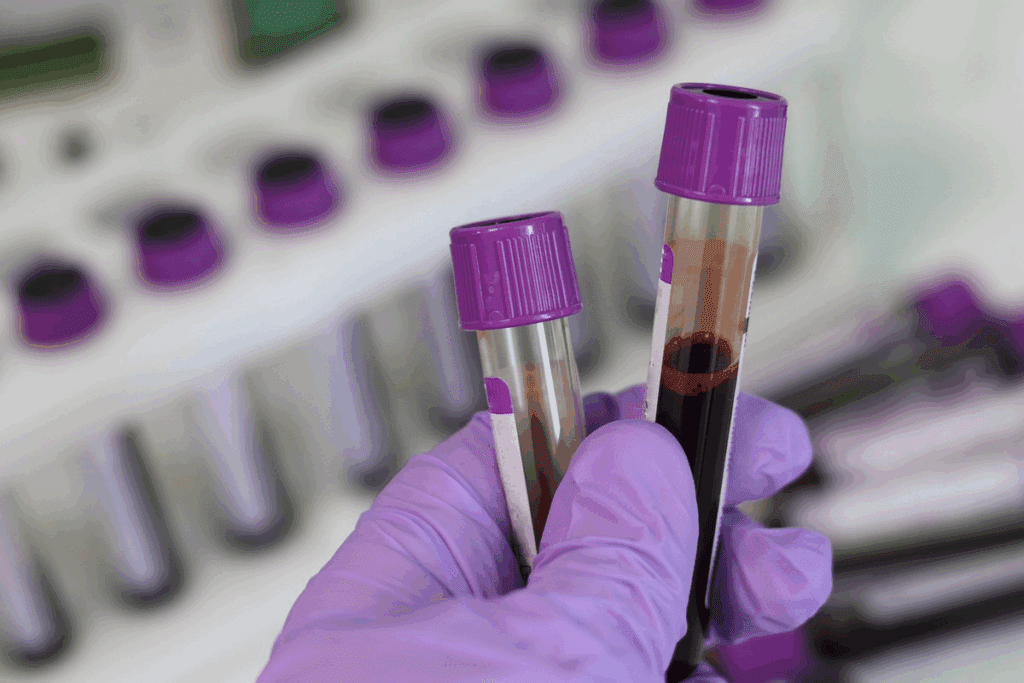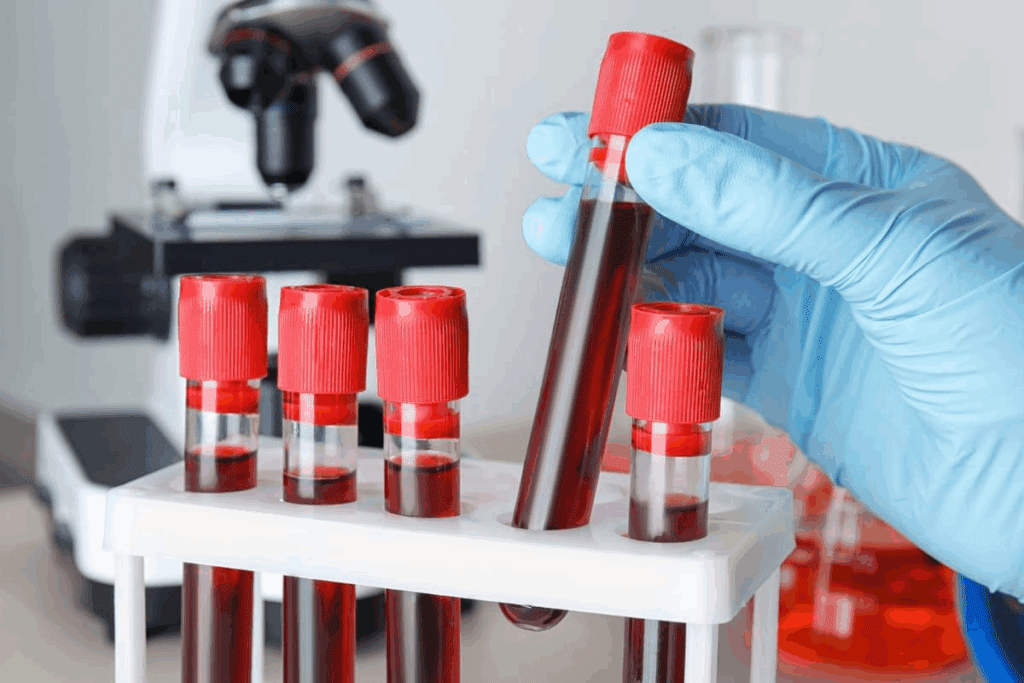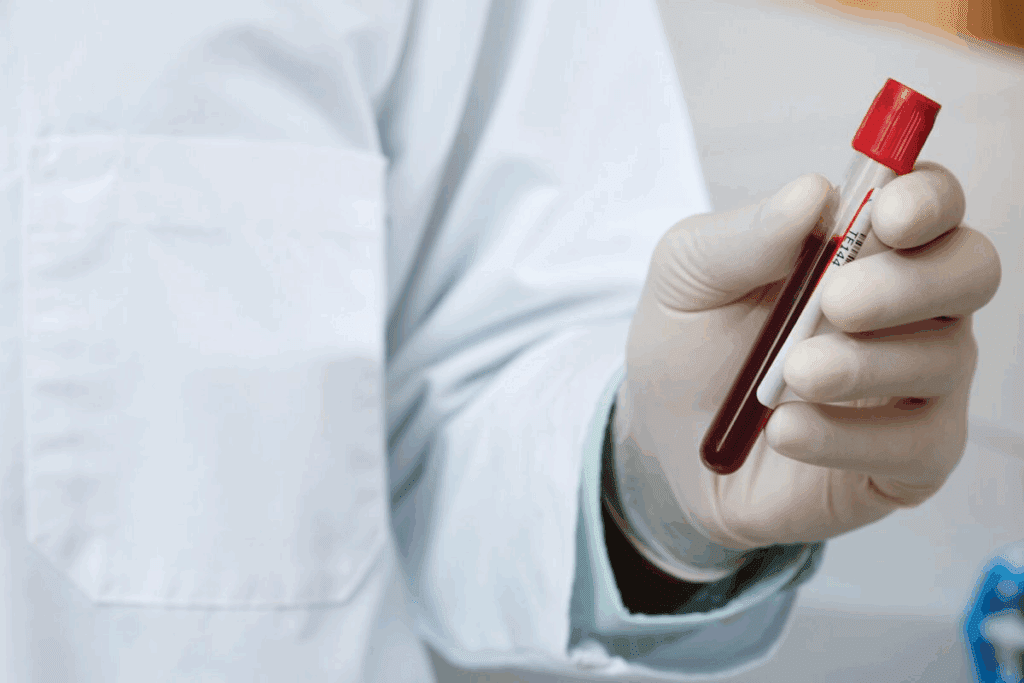Last Updated on October 21, 2025 by mcelik

Did you know millions of Complete Blood Count (CBC) tests are done every year in the U.S.? They help diagnose and monitor many health issues. Knowing the turnaround time for CBC results is key for both patients and doctors. It affects how quickly they can plan treatment.
A CBC is a common blood test that checks different parts of the blood. It looks at red and white blood cells, hemoglobin, and platelets. It’s important for spotting problems like anemia, infections, and leukemia. Knowing when to expect CBC results timing helps patients feel less anxious while waiting.
The processing time for CBC tests changes based on several things. This includes how busy the lab is and the technology they use. Most labs aim to give results quickly. It’s important to know what affects the CBC results.

It’s important for patients and doctors to know about CBC testing. It helps find and track many health problems. A Complete Blood Count (CBC) test checks the blood’s health by looking at different parts.
A CBC is a common blood test. It shows the levels of red, white blood cells, and platelets. This test is key for spotting issues like anemia, infections, leukemia, and blood disorders.
A Complete Blood Count is a set of tests. They measure the blood’s cell types. The main parts checked are:
CBC testing is used for many reasons, including:
Knowing about CBC testing helps patients and doctors. It shows how important this tool is for health.
Knowing how long it takes to get CBC results is key for patients and doctors. The time it takes can change based on where the test is done and whether the patient is an outpatient or inpatient.
How long it takes to get CBC results can be anywhere from a few hours to a few days. Routine CBC tests usually need 24 to 48 hours to process. But some places offer expedited services for more money.
“Laboratory testing has changed a lot,” says a medical lab expert. “Now, we can get results faster and more accurately.” This is very important when a quick diagnosis is needed.
Outpatient and inpatient CBC tests have different times because of the care they need. Inpatient tests get results faster, often in a few hours. This is because these patients need care right away.
How results are delivered also affects the time it takes. More and more, results are sent electronically. This makes it quicker for doctors to see them.
Electronic delivery makes things faster and cuts down on lost or delayed results. As labs use new tech, sending results online will likely become even more common.
In short, knowing what affects CBC result times helps everyone. Using electronic delivery and understanding outpatient vs inpatient testing makes care better for patients.

The CBC testing process is detailed and important. It starts when a blood sample is taken and ends when the results are ready.
The first step is sample collection. This is key to getting accurate results. A healthcare professional draws blood from your arm. They use a sterile needle and a special tube to prevent clotting.
Getting the sample right is essential for good CBC results. The process includes identifying the patient and preparing the site. It also involves using the right technique to avoid mistakes.
Patient identification is very important. It makes sure the sample is correctly labeled and matched to the right patient.
After the sample is taken, it goes to the lab. Here, it goes through several steps. These include receiving the sample, analyzing it on a special machine, and checking the quality.
The machine used is called a hematology analyzer. It counts and checks the different parts of your blood. This gives detailed CBC results.
After the analysis, the results are verified. This is done by lab experts to make sure they are right. It’s important for healthcare providers to trust the results.
After checking, the results are reported to the healthcare provider. They usually get the results through a computer system. This makes sure they get the information they need quickly.
The whole CBC testing process is designed to give healthcare providers the information they need. It helps them make the best decisions for their patients.
The CBC result speed is influenced by several factors in the lab. How well a lab works affects how fast results get to doctors.
The amount of work and staff in a lab are key to CBC speed. Too many samples and not enough staff can slow things down.
The tech and tools in labs are vital for CBC speed. New hematology analyzers are faster and more accurate than old ones.
Advanced equipment makes tests quicker and results more reliable.
How long it takes to get samples to the lab is also important. Any delay in getting samples can slow down results.
| Factor | Impact on CBC Result Speed | Potential Solution |
| Laboratory Workload | High workload can cause delays | Adjust staffing levels, prioritize tests |
| Testing Equipment | Outdated equipment slows processing | Upgrade to modern analyzers |
| Sample Transportation | Delays in sample delivery | Implement efficient logistics, use pneumatic tubes |
Understanding these factors and finding ways to fix them can help labs speed up CBC results. This improves care for patients.
It’s important to know how CBC test times differ in hospitals, clinics, and labs. Where you get your CBC test done affects how fast you get the results.
Hospitals have their own labs for CBC tests. The time it takes can depend on the hospital’s size, the lab’s workload, and the equipment they use.
Key factors affecting hospital CBC timing:
Hospitals usually give CBC results in 1-2 hours for urgent cases. Non-urgent results might take longer.
Primary care offices often send CBC samples to labs outside. The time it takes depends on the office’s lab relationship and how often samples are picked up.
Typical timeframes for clinic CBC results:
Independent labs handle lots of samples. Their times can be affected by their capacity, technology, and logistics.
Factors influencing commercial lab CBC timing:
Commercial labs usually give results in 24 hours. Butthis can change based on the mentioned factors.
In conclusion, CBC result times vary in different healthcare settings due to lab capabilities, test urgency, and logistics. Knowing these differences helps healthcare providers manage patient expectations and make better decisions.
Knowing the difference between urgent and routine CBC testing is key. Urgent CBCs are needed in emergencies or when a patient needs a quick diagnosis and treatment.
STAT orders get top priority in labs, ensuring fast results. “STAT” comes from the Latin ‘statim,’ meaning ‘immediately.’ So, a CBC ordered as STAT gets done before routine tests, cutting down wait time.
Emergency processing means quick handling of blood samples, from start to finish. Labs have special plans for STAT orders. They use special staff and tools for fast work.
Labs sort tests by priority, with STAT at the top. Routine tests take longer because they’re done in batches. The test’s priority level affects how fast you get the results.
Laboratory systems help manage these priorities. They make sure urgent tests get done quickly. A lab expert says, “Good use of these systems is vital for efficient work and fast results.”
Testing outside regular hours is tough for labs because of fewer staff. But many labs work around the clock. They have on-call teams or 24/7 staff for urgent tests like CBCs.
Being able to test CBCs anytime is vital for ongoing care. It’s important for emergency rooms and patients in the hospital. Healthcare pros say, “Continuous lab services are key for quick patient care.”
In summary, how fast you get CBC test results depends on the test’s urgency. Understanding urgent vs. routine testing, including STAT orders and priority, is important for both healthcare providers and patients.
Some places can give you CBC results the same day. This is important for making quick medical decisions, like in emergency situations.
Some hospitals and clinics can give you CBC results fast. These include:
These places have the right equipment and processes for expedited testing.
To get CBC results the same day, you need a few things:
With these, labs can do rapid CBC testing accurately.
But, there are some downsides to fast CBC results:
Knowing these limits helps set the right expectations for CBC result timeframes.
In summary, same-day CBC results are possible in certain places that meet specific needs. While there are challenges, the benefits are clear in the right situations.
Healthcare is changing with point-of-care CBC testing. It’s a new way to test blood, different from old lab tests.
Point-of-care CBC testing helps make quick diagnoses in many places. It’s great in emergency rooms and critical care areas where fast decisions are key.
In offices, doctors can quickly decide on patient care without waiting for lab results.
Even though it’s fast, point-of-care CBC testing isn’t as accurate as lab tests.
A study shows how POC CBC testing compares to lab tests:
| Parameter | POC CBC Testing | Laboratory CBC Testing |
| White Blood Cell Count | ±5% | ±2% |
| Red Blood Cell Count | ±3% | ±1% |
| Hemoglobin | ±2 g/dL | ±0.5 g/dL |
POC CBC testing is used in many places, like:
Having POC CBC testing in these places makes CBC analysis more efficient. It helps in efficient CBC processing, leading to better care for patients.
New technologies in hematology analyzers and lab systems have greatly sped up CBC tests. These changes make testing faster and more accurate.
Today’s hematology analyzers have changed CBC testing. They offer quick and precise blood analysis. These tools use advanced methods like impedance counting and optical scatter to measure blood components accurately.
Key Features of Modern Hematology Analyzers:
Laboratory Information Systems (LIS) are key in making CBC testing smoother. They manage data from start to finish. This makes labs more efficient, cuts down on mistakes, and speeds up getting results to doctors.
| Feature | Description | Benefit |
| Sample Tracking | Real-time monitoring of sample status | Reduces sample loss and delays |
| Automated Result Reporting | Electronic delivery of results to healthcare providers | Speeds up clinical decision-making |
| Data Analytics | Analysis of laboratory data for quality improvement | Enhances laboratory performance and patient care |
Automation has cut down CBC test times a lot. Automated systems do tasks like preparing samples, analyzing them, and reporting results. This cuts down on human mistakes.
The use of automation in blood testing has changed labs. It makes CBC results faster and more reliable.
CBC result timing is shaped by many factors. These include where you live and the size of your hospital. Knowing these differences helps healthcare teams and patients plan better.
Lab services vary a lot between cities and the countryside. Cities have better labs and more staff, so tests are done faster. But rural areas face issues like fewer labs and longer travel times for samples.
In rural areas, getting to labs can take a long time. A study showed rural labs take about 24 hours for CBC results. In cities, it’s just 4-6 hours.
Hospital size affects how fast CBC tests are done. Bigger hospitals have better equipment and more skilled people. This means they can do CBCs quickly
| Hospital Size | Average CBC Turnaround Time |
| Large (>500 beds) | 2-4 hours |
| Medium (100-500 beds) | 4-6 hours |
| Small ( | 6-24 hours |
State laws also impact how fast CBC results come back. Some states have stricter rules for lab tests and reporting. This can affect how quickly results are given.
For example, some states want labs to report urgent results right away. Others have more flexible rules. It’s important for labs to follow these rules and for doctors to know when to expect results.
Some patients have special needs that affect CBC testing and how fast results come back. These groups need special care to get accurate and quick test results.
Pediatric patients face unique challenges in CBC testing. They have smaller blood samples and need special handling. Labs often give these samples top priority to help diagnose and treat them quickly.
Typical Turnaround Time for Pediatric CBC: In hospitals, pediatric CBC results usually come back in 1-2 hours. Outpatient clinics might take a bit longer.
Oncology patients need CBC tests often because of their treatments. Their tests are usually done right away because their treatment plans are so important.
Patients with weakened immune systems, like those with HIV/AIDS or on immunosuppressive therapy, need close monitoring of their CBC results. Their tests are given high priority because they are at high risk of infections.
| Patient Group | Typical CBC Turnaround Time | Priority Level |
| Pediatric Patients | 1-2 hours | High |
| Oncology Patients | 30 minutes – 1 hour | STAT |
| Immunocompromised Patients | 1-2 hours | High |
The speed at which CBC results are available for these groups is critical for their care. Healthcare providers must find a balance between getting results quickly and managing the lab’s workload.
It’s important to know what affects how fast CBC results come back. Things like how busy the lab is, the type of equipment used, and how long it takes to get the sample can change the time it takes.
The time it takes for CBC results can really vary. It depends a lot on where the test is done. Hospitals, clinics, and independent labs have different speeds. Urgent cases might get fast results, but regular tests might take longer.
Getting CBC results quickly is key to good patient care. Knowing what can slow down results helps labs and doctors work faster. This way, they can give patients the help they need sooner.
Understanding CBC testing helps everyone involved. It lets healthcare teams and patients plan better. They can use the latest technology and options to get the best results.
A CBC is a blood test that checks many parts of your blood. It looks at red and white blood cells, hemoglobin, and platelets. It helps doctors find and track diseases like anemia, infections, and leukemia.
A CBC’s wait time changes based on the lab and how fast they work. Normal tests usually take a few hours to a day. But urgent tests might be ready in under an hour.
Many things can slow down CBC results. These include how busy the lab is, who’s working there, and how fast the samples get there. Also, whether it’s a fast or slow test can make a difference.
Yes, you can get CBC results the same day in some places. This is more common in emergency rooms or clinics with quick tests. But it depends on the lab’s work and the test’s priority.
Point-of-care CBC testing is done right at your bedside or in an office. It’s fast but not as detailed as lab tests. Yet, it’s usually good enough for making quick medical decisions.
Modern analyzers make CBC tests faster and more precise. They use automated sampling and advanced technology for quick, accurate results.
Where you live and the size of your hospital can change how fast you get CBC results. These factors affect the lab’s resources and how quickly they can test your blood.
Yes, some patients need special CBC tests. Kids and cancer patients might need tests done faster or more often. This can change how long it takes to get results.
Getting CBC results the next day is possible. But it depends on the lab and how busy they are. Routine tests might take longer than urgent ones.
Lab systems and automation make CBC tests faster and more reliable. They cut down on mistakes and help track samples better. This means labs can do more tests quickly and with better accuracy.
Subscribe to our e-newsletter to stay informed about the latest innovations in the world of health and exclusive offers!